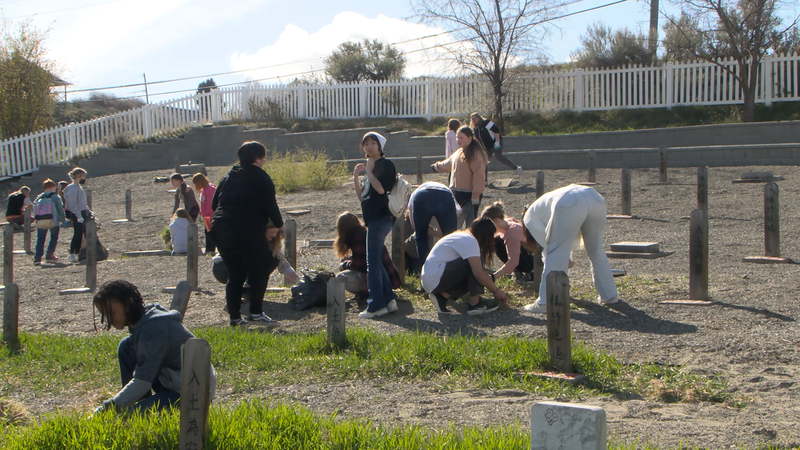
KSA students preserve Kamloops Chinese Cemetery
KAMLOOPS — Grade four, five and ten students from Kamloops School of the Arts spent Wednesday (April 20) at the Kamloops Chinese Cemetery — dusting, sweeping and pulling weeds.
The students are learning about the adversity that Chinese immigrants went through at the hand of the Canadian government, and working to preserve the cultural site is a way for them to make amends to the local Chinese community.
“It shows how they can learn about something that wasn’t the greatest part of Canadian history, and how we can give back to those people and show that we care about these people and that we’re glad this is a part of what Kamloops is,” said Grade 4 and 5 teacher Claire Covington.


